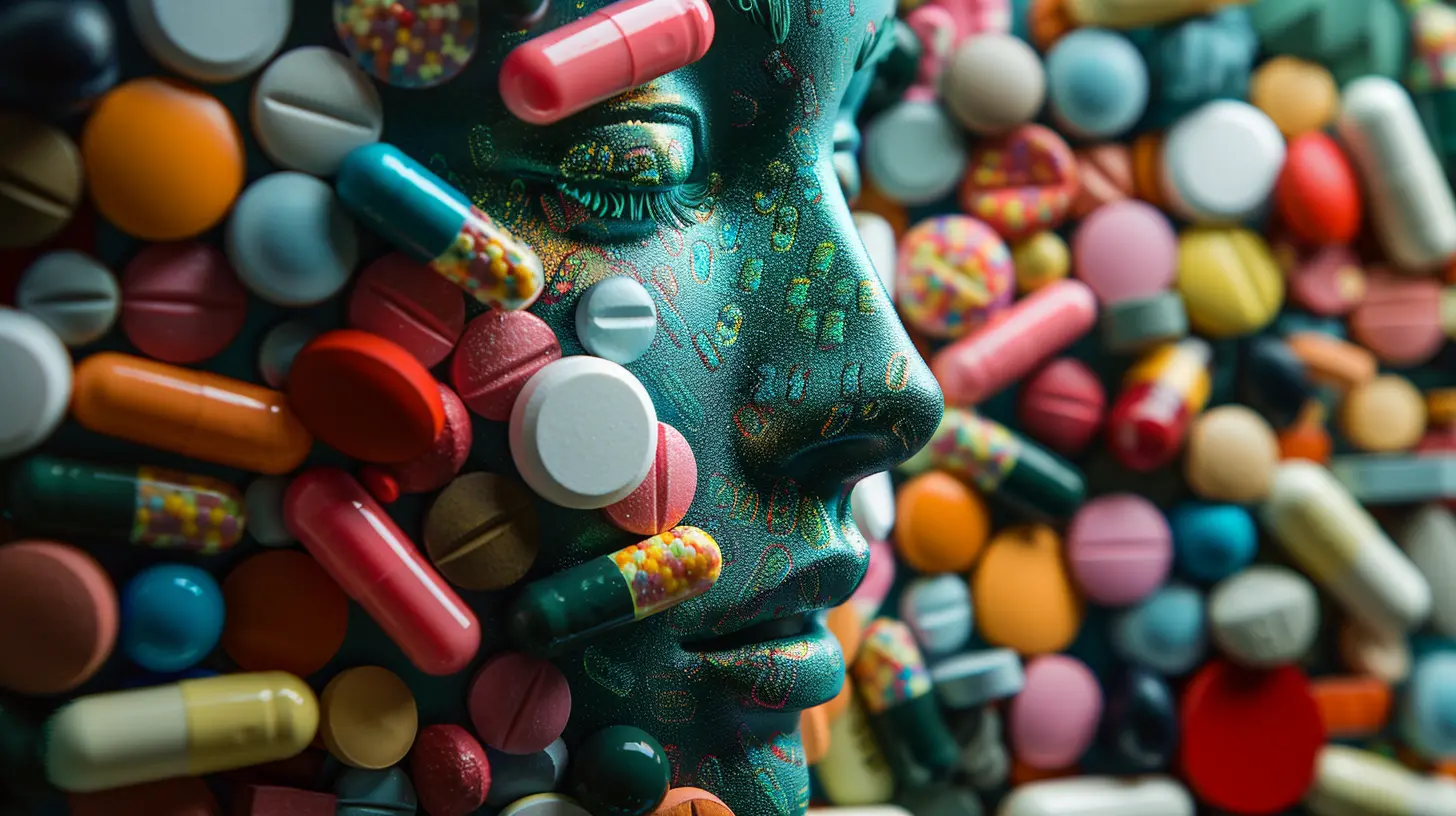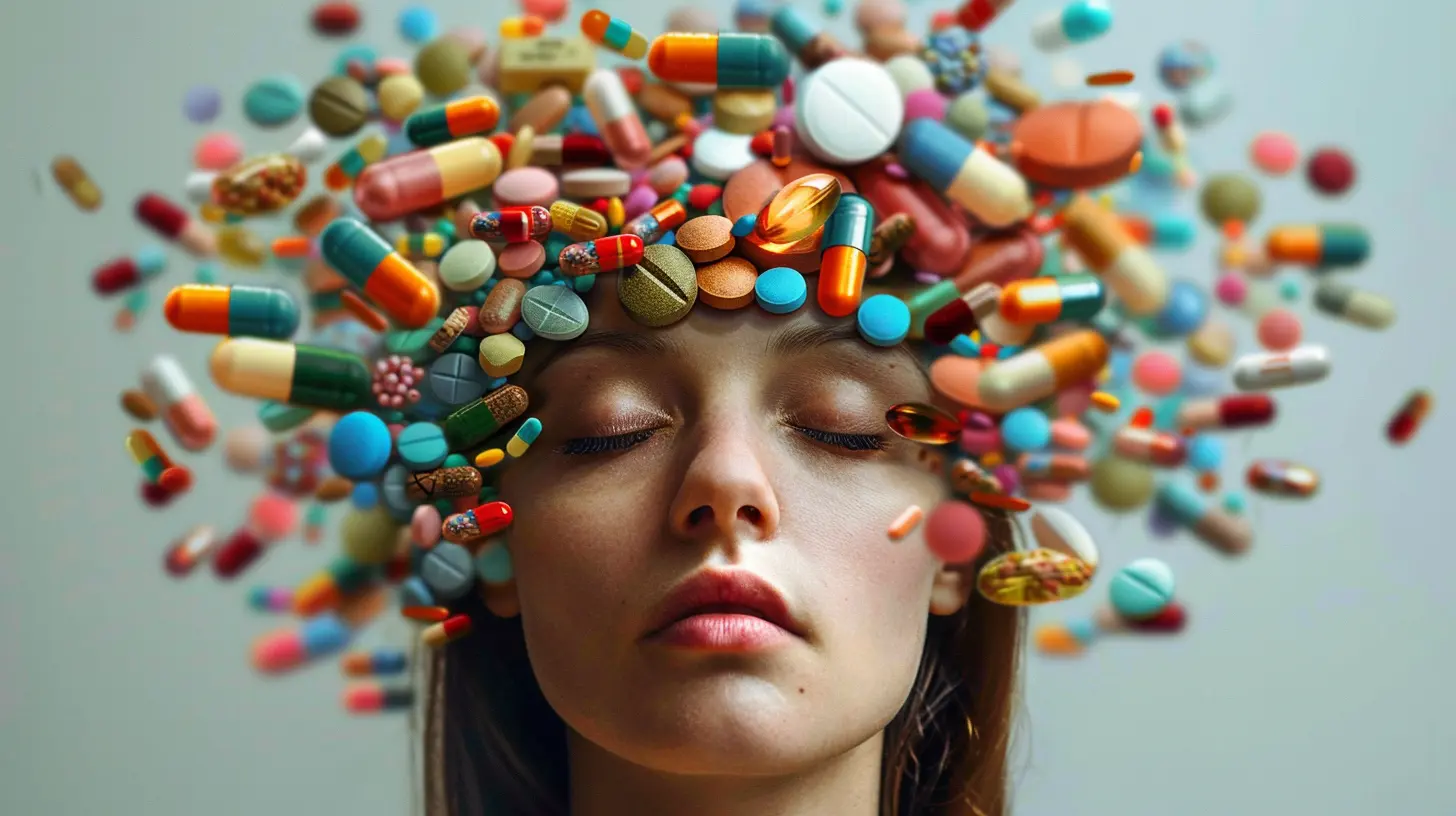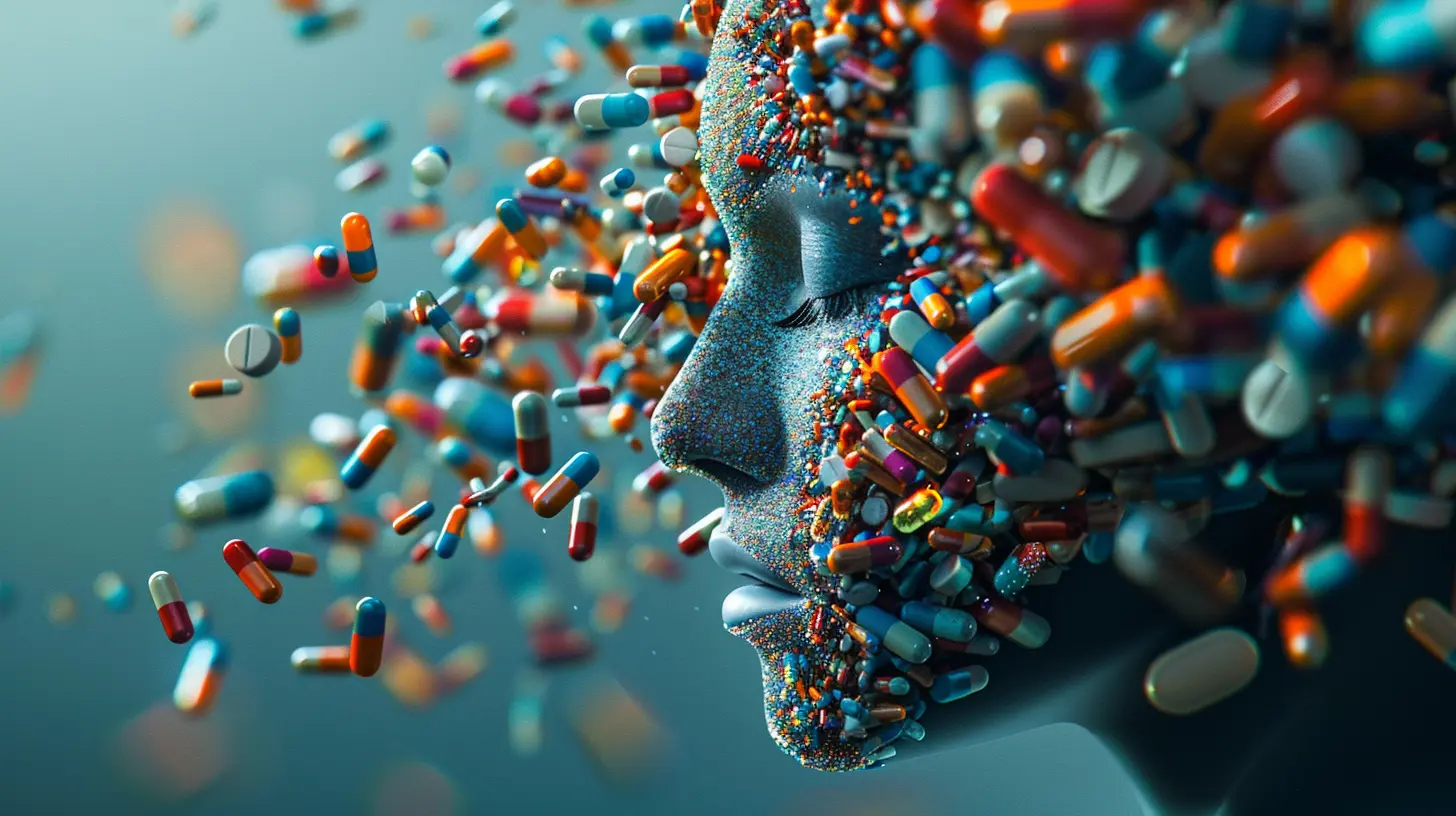The Role of Medication in Managing Psychiatric Disorders
20 November 2025
Mental health is just as important as physical health, yet it’s often misunderstood. Psychiatric disorders can wreak havoc on a person’s life, making everyday activities feel like climbing a mountain with a backpack full of bricks. While therapy, lifestyle changes, and support systems play a vital role in mental well-being, medication has become a cornerstone in managing psychiatric disorders.
But how exactly does medication help? Is it a cure or just a crutch? And what are the risks involved? Let’s break it all down.

Understanding Psychiatric Disorders
Before we dive into medication, let’s get a clear picture of psychiatric disorders. These are conditions that affect a person’s mood, thinking, and behavior. Some of the most common include:- Depression – Persistent feelings of sadness, hopelessness, and lack of motivation.
- Anxiety Disorders – Extreme worry, fear, or nervousness that impacts daily life.
- Bipolar Disorder – Sudden swings between emotional highs (mania) and lows (depression).
- Schizophrenia – A severe condition that affects a person’s ability to think clearly, manage emotions, and interact with others.
- Obsessive-Compulsive Disorder (OCD) – Involuntary repetitive thoughts and actions.
- Post-Traumatic Stress Disorder (PTSD) – Anxiety triggered by past trauma.
These disorders are complex and can stem from genetic, environmental, and neurological factors. Because of this complexity, no single approach works for everyone. That’s where medication comes in.

How Medication Helps Manage Psychiatric Disorders
Medication isn't a magic pill that instantly fixes everything, but it plays a crucial role in managing symptoms. Here’s how it helps:1. Restoring Chemical Balance
Many psychiatric disorders are linked to imbalances in brain chemicals (neurotransmitters) like dopamine, serotonin, and norepinephrine. Medications help stabilize these chemicals, much like a thermostat regulates room temperature.2. Reducing Symptoms
For someone with severe anxiety or depression, everyday tasks can feel impossible. Medication can ease symptoms, allowing people to engage in therapy, develop coping strategies, and regain control over their lives.3. Preventing Relapses
Certain psychiatric conditions, like bipolar disorder and schizophrenia, come with high relapse rates. Medication can help keep symptoms in check, reducing the frequency and intensity of episodes.4. Enhancing the Effectiveness of Therapy
Therapy is a powerful tool, but for some people, it’s tough to focus when their symptoms are overwhelming. Medication can provide the emotional stability needed to get the most out of therapy sessions.
Types of Psychiatric Medications
There isn’t a one-size-fits-all medication for mental health disorders. Different classes of drugs are used based on the condition being treated.1. Antidepressants
These medications are primarily used for depression and anxiety disorders. The most common types include:- Selective Serotonin Reuptake Inhibitors (SSRIs) – Like Prozac, Zoloft, and Lexapro, which increase serotonin levels and help regulate mood.
- Serotonin-Norepinephrine Reuptake Inhibitors (SNRIs) – Such as Effexor and Cymbalta, which target both serotonin and norepinephrine.
- Tricyclic Antidepressants (TCAs) – Older antidepressants like Amitriptyline, used when other treatments don’t work.
2. Antipsychotic Medications
Used primarily for schizophrenia and bipolar disorder, these medications help manage psychotic symptoms like hallucinations and delusions. They fall into two categories:- Typical Antipsychotics – Older drugs like Haloperidol that block dopamine receptors.
- Atypical Antipsychotics – Newer drugs like Risperdal and Abilify, which target multiple neurotransmitters.
3. Mood Stabilizers
These are crucial for managing bipolar disorder, which involves extreme mood swings. Some common mood stabilizers include:- Lithium – One of the oldest and most effective treatments for bipolar disorder.
- Valproic Acid – Often prescribed when lithium isn’t effective.
- Lamotrigine – Particularly useful for managing depressive phases of bipolar disorder.
4. Anti-Anxiety Medications
For those struggling with chronic anxiety, certain medications can help:- Benzodiazepines – Like Xanax, Ativan, and Valium, which provide quick relief but can be addictive if misused.
- Buspirone – A non-addictive option for generalized anxiety disorder.
5. Stimulants
Used primarily for Attention Deficit Hyperactivity Disorder (ADHD), stimulants help improve focus and impulse control. Common ones include:- Adderall – A combination of amphetamine salts.
- Ritalin – A methylphenidate-based stimulant.

Potential Risks and Side Effects
While medication can be life-changing, it’s not without risks. Some people experience side effects such as:- Weight gain or loss
- Drowsiness or insomnia
- Nausea
- Mood swings
- Sexual dysfunction
In rare cases, medications can cause severe reactions like increased suicidal thoughts, serotonin syndrome, or dependency. That’s why it’s essential to work closely with a healthcare provider to find the right medication and dosage.
Medication vs. Therapy: Which One is Better?
This is a common question, and the answer is—it depends. Some psychiatric disorders, like schizophrenia or severe bipolar disorder, almost always require medication. Others, like mild depression or anxiety, can sometimes be managed through therapy, lifestyle changes, and support systems.For many people, the best approach is a combination of both. Medication stabilizes symptoms, while therapy addresses the root causes and teaches coping skills. Think of it like crutches—you might need them to walk when you’re injured, but the goal is to regain strength and walk on your own.
The Stigma Around Psychiatric Medication
Despite advances in mental health awareness, there’s still a stigma around taking psychiatric medication. Some people see it as a sign of weakness or think it’s "unnatural." But here’s the truth—mental health conditions are real medical issues, just like diabetes or high blood pressure. No one shames a diabetic for taking insulin, so why should psychiatric medication be any different?Breaking the stigma starts with education and open conversations. Medication isn’t about “changing who you are”—it’s about giving you the tools to live your life fully.
Finding the Right Treatment Plan
If you or someone you know is struggling with a psychiatric disorder, the first step is seeking professional help. A psychiatrist or healthcare provider can evaluate symptoms, discuss treatment options, and help develop a personalized plan.Finding the right medication can take time. Sometimes, it’s a trial-and-error process to see what works best with minimal side effects. Patience and open communication with a doctor are key.
Final Thoughts
Medication plays a crucial role in managing psychiatric disorders, helping millions of people lead healthier, more stable lives. While it’s not a cure, it can be a powerful tool in the broader journey of mental health recovery.If you or a loved one is considering psychiatric medication, don’t be afraid to ask questions, seek professional guidance, and prioritize mental well-being. Just like any other medical treatment, it’s about finding what works best for the individual.
all images in this post were generated using AI tools
Category:
Psychiatric DisordersAuthor:

Paulina Sanders
Discussion
rate this article
1 comments
Sara Cannon
Empowerment through informed choices!
December 2, 2025 at 5:22 AM

Paulina Sanders
Absolutely! Informed choices are crucial in medication management, enabling individuals to take an active role in their mental health journey.


